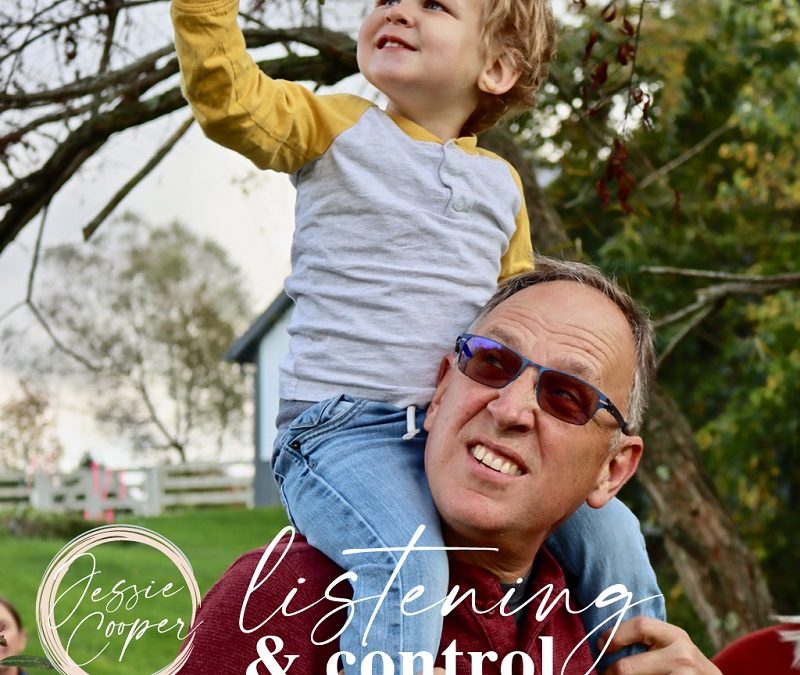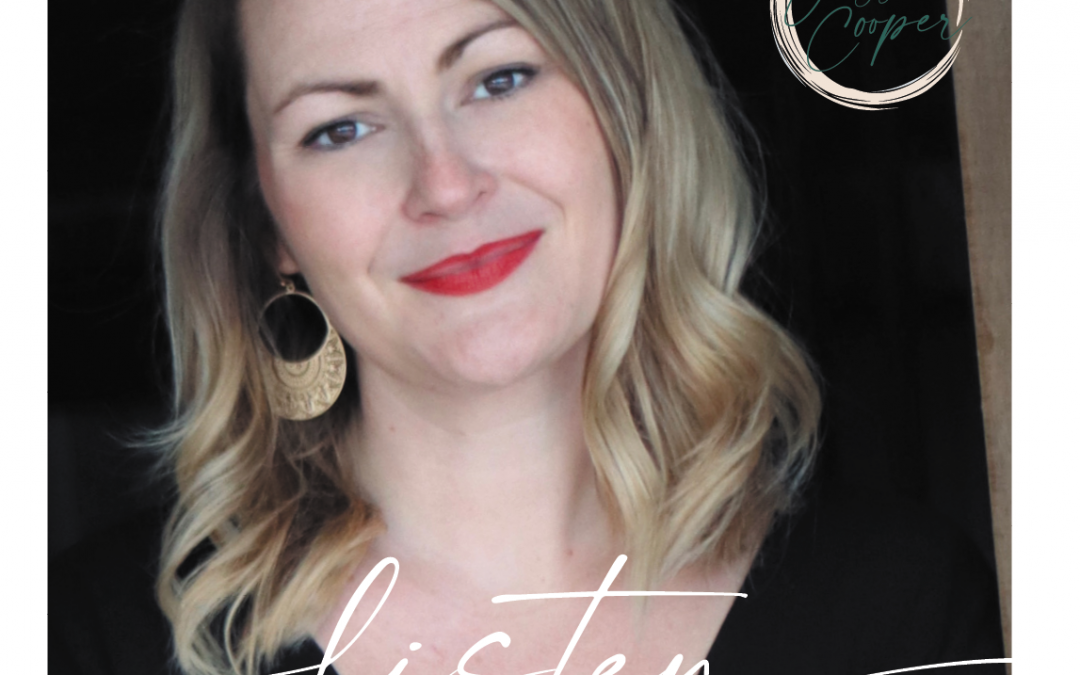
by IABA Team | Nov 8, 2022
Choosing a daycare program is tough enough for neurotypical children. Adding autism to the equation can make the process seem like scaling a mountain.
So, what can you do to make the process easier? Where should you start looking? Let’s take a look at some great ways to help select a daycare program for children with autism.
Where do you Need Care?
Many ASD service providers offer in-home and clinical services–knowing which service you need can help narrow down your search before it even begins.
In-clinic autism services, including daycare, are great options for children who can adapt to changes in routine with some help. Children less affected by sensory stimuli are more likely to benefit from in-clinic daycare services.
At-home autism services are best utilized by those with special needs. Some clinics may not be set up to handle the specific needs of a child. Children that have many special needs (foods, toys, scenery, etc) and/or extreme difficulties with changes to routines may be more suited for in-home daycare.
Typical daycare programs may be an option for children with autism. There are things to look for specifically before enrolling a child with autism in a traditional daycare program:
- Staff experience with autism
- Individualized activities for children
- Taking special requests (if you provide toys, activities, snacks, etc)
- Communication
Talk to the Staff
Talking to the staff and caregivers about your child’s needs and what their daycare programs offer is a great way to find out if a program will be a good fit. While websites often list services, features, and more, it is not a substitute for actually talking to someone.
A great thing to remember is to be sure to make a list of questions ready for anyone you talk to. A great list will include any special needs your child has or worries you have. Getting the answers you need is one of the keys to finding a great daycare program for your child.
After you find a care provider that can take care of your child’s needs, be sure to ask questions about the staff. Things like:
- Staff experience (especially with any special needs your child has)
- Staff licensure
- Communication policies (reports and calls with parents/families)
- Goal setting (both in-clinic and at home)
Make sure to get satisfactory answers to these questions from any care provider you talk to–the care of your child will be handled by them!
Daycare Reports
Knowing how your child is doing is very important when it comes to children with autism & school/care programs. Most autism service providers will have daily or weekly reports on your child’s behavior and progress. Making sure the information you need is on daycare reports is an important part of a great daycare program’s job.
Continuing care from clinic to home (or from in-home clinician to parent) is a huge part of helping children with autism develop. Great reporting from a daycare provider leads to great communication between the parents, the daycare provider, and the child.
ABA Therapy from IABA Consultants
If you have questions regarding autism treatment, education, or plans to use ABA therapy, we are here for you! Our goal is to make sure no family is turned away due to financial constraints. Our therapy team would love to talk to you. Find the location closest to you and give us a call. We’re here for you.

by IABA Team | Oct 31, 2022
Autism has traditionally been diagnosed more frequently in males, but new studies have shown that autism may have nothing to do with sex. The lower prevalence of autism in girls may be due to specific behaviors that indicate autism going unnoticed.
The signs and symptoms of autism do not differ between boys & girls. The way some signs and symptoms of autism can be shown through behaviors, however, can differ.
General Signs of Autism
Before looking at how behaviors that potentially indicate autism may differ between boys and girls, let’s look at some of the general signs of ASD. Signs of general autism normally include:
- Social behavior issues
- Communication issues
- Problems understanding relationships
- A very narrow set of interests and areas of focus
- Stimming (repetitive motor actions and/or sounds)
- Difficulty adapting to change
- Extreme reactions to sensory stimuli
Signs of Autism in Boys
The reason autism diagnoses have been observed at higher levels in boys is that the behaviors most people associate with autism frequently appear in young boys. These signs include:
- Repetitive Actions & Play. Boys with autism are more likely than girls to engage in extremely limited and repetitive actions & play.
- Narrow Fields of Interest. Fields of interest including mechanical or data-driven topics often appeal much more to boys with autism than girls.
- Aggression. Aggression related to autism manifests much more often in boys than in girls.
- Social Unawareness. Boys with autism seem more socially ‘awkward’ than girls with ASD. Younger boys with autism often seem socially withdrawn and uninterested, unlike a larger number of young girls with autism.
Please note that signs of autism can differ greatly from person to person. Some of the signs listed in both of these lists can surface in both boys and girls. These lists are simply to show signs that occur more often when diagnosing autism in young girls & boys.
Signs of Autism in Girls
Some of the criteria used to diagnose autism may go unnoticed by parents or teachers when it comes to girls. These signs can manifest in different ways. Some of the signs of autism that girls exhibit more than boys include:
- Introversion. Girls with autism may be more introverted or be considered to be ‘shy’ than boys. While being introverted doesn’t necessarily mean a girl has autism, being severely introverted may be a warning sign.
- Hyper focusing. Hyper focusing is, broadly speaking, complete absorption into a task. In girls with autism, hyperfocus totally prevents them from dividing attention between more than one thing.
- Lack of social awareness. Another sign that a young girl may have autism is a lack of social awareness. This manifests itself in a girl being unable to establish the relevance or importance of others, leading to a lack of understanding social cues.
- Auditory/Sensory Processing. Severe auditory and other sensory processing sensitivities or issues may also be a sign of autism. This is different than being scared of alarmed due to loud or explosive sounds and more about issues with sounds or sensory stimuli most people take no issue with.
- Social Camouflaging. Social camouflaging can be the most difficult sign of autism in young girls for parents to detect. Young girls with mild autism may go undiagnosed due to seeming socially neurotypical. This makes looking for other signs even more important.
ABA Therapy from IABA Consultants
If you have questions regarding autism treatment, education, or plans to use ABA therapy, we are here for you! Our goal is to make sure no family is turned away due to financial constraints. Our therapy team would love to talk to you. Find the location closest to you and give us a call. We’re here for you.

by IABA Team | Oct 24, 2022
Autism has traditionally been diagnosed more frequently in males, but new studies have shown that autism may have nothing to do with sex. The lower prevalence of autism in girls may be due to specific behaviors that indicate autism going unnoticed.
Let’s take a look at why autism in girls is often overlooked and what those signs are.
Girls & Autism
Why have many signs of autism in girls been overlooked for so long? The short answer is behavioral patterns. While the criteria used to diagnose autism are not different for boys and girls, the way the signs appear may be different.
Signs of general autism normally include:
- Social behavior issues
- Communication issues
- Problems understanding relationships
- A very narrow set of interests and areas of focus
- Stimming (repetitive motor actions and/or sounds)
- Difficulty adapting to change
- Extreme reactions to sensory stimuli
This list is very general and non-specific, but they are related to the criteria used to diagnose autism. The behaviors that show some of these issues, however, can be different for boys & girls.
Signs of Autism in Girls
Some of the criteria used to diagnose autism may go unnoticed by parents or teachers when it comes to girls. These signs can manifest in different ways. Some of the signs of autism that girls exhibit more than boys include:
- Introversion. Girls with autism may be more introverted or be considered to be ‘shy’ than boys. While being introverted doesn’t necessarily mean a girl has autism, being severely introverted may be a warning sign.
- Hyper focusing. Hyper focusing is, broadly speaking, complete absorption into a task. In girls with autism, hyperfocus totally prevents them from dividing attention between more than one thing.
- Lack of social awareness. Another sign that a young girl may have autism is a lack of social awareness. This manifests itself in a girl being unable to establish the relevance or importance of others, leading to a lack of understanding social cues.
- Auditory/Sensory Processing. Severe auditory and other sensory processing sensitivities or issues may also be a sign of autism. This is different than being scared of alarmed due to loud or explosive sounds and more about issues with sounds or sensory stimuli most people take no issue with.
- Social Camouflaging. Social camouflaging can be the most difficult sign of autism in young girls for parents to detect. Young girls with mild autism may go undiagnosed due to seeming socially neurotypical. This makes looking for other signs even more important.
What To Do
If you notice any regular occurrences of irregular behavior, you may want to check in with your child’s pediatrician. A single behavioral issue is usually not enough to seek a medical opinion, but frequent irregular episodes could indicate an evaluation.
Seeking professional medical help is the only way to truly get a proper diagnosis.
ABA Therapy from IABA Consultants
If you have questions regarding autism treatment, education, or plans to use ABA therapy, we are here for you! Our goal is to make sure no family is turned away due to financial constraints. Our therapy team would love to talk to you. Find the location closest to you and give us a call. We’re here for you.

by Jessie Cooper | Sep 1, 2022
Growing up my grandparents lived on a farm in northeast Ohio about an hour from my parent’s home. During my childhood, the farm was my happy place for so many years. As a child fitting in was not my strong suit and I didn’t have the wisdom I possess now that fitting in is never the goal; belonging to our own hearts is. Whenever we visited my grandparents I felt at peace against the chaos of the world. I suppose I knew a little about belonging because on the farm I felt it.
As a child every summer my parents would take us for a week to learn and live with my grandparents. My grandma Virginia was a beautiful quilter and wanted to teach all her grandchildren to sew. Kristen, my sister, took to this quickly and to this day has a quilt rack in her office. Me? I am perfectly capable of sewing (thanks grandma) and it literally makes my stomach sick to focus on details that small. To this day I also still take my sister my mending pile.
Country Living
To escape the task of sewing I trotted at the boots of my grandpa Bob and did whatever chores he was doing. Each morning before the sun would rise we would get up and put on our “shit” boots then head down to the barn. I would pull the hose bringing water to the chickens, pigs, sheep, cows, goats, ducks, and my favorite; the cats. We would scoop food together, muck out stalls and make sure all the animals were ready for their day. After our early morning activities, my grandpa would pour me a bowl of cereal, slap it onto a metal tray, and we would watch whatever farming show was on in the morning on the shaggy carpet of their living room. Throughout the day I would drag buckets of water to my grandpa as he planted and by night we would rock on their porch swing eating popsicles made from my grandma’s grapevine.
I was in love with this life. Walking through the fields, watching the animals, nursing bottle-fed sheep in the morning, and kicking off my very important shit boots right alongside my grandpa. There was never a moment when there wasn’t something the earth needed or wanted. My grandma told me on a farm that the work is never done, it is waiting for its keeper. When summer ended we would visit the farm about twice a year to see my aunts, uncles, and cousins. Traditions of their own came with the holidays and gathering with my family, while different from me, filled me with quiet gratitude.
In the spring of 2020, my marriage was at a critical juncture and at the same time the world shut down for 12 weeks. I was at home terrified daily for my business in the first days of the pandemic and I knew in my heart that something had to change in my life. I had spent the last decade in Illinois building my business, making friendships that will last a lifetime, and becoming a mama to three beautiful boys. At the time I didn’t know my marriage would end but I did know I needed a happy place and missed my family dearly. I then did something that to this day I don’t know if it came from wisdom or fear. I bought a three-acre farm in Johnstown Ohio sight unseen in 24 hours. My children and I moved to the farm in August of 2020 and within a month I separated from my ex-husband.
Re-Discovering Life in the Country
The past two years have been nothing short of painful but they have also brought me incredible joy. I am a woman who always has to know why and to this day I’m not really sure why I’m here in Johnstown or bought the farm. The only thing I can settle into is this is our healing house. The family who built this house put such love, care, and detail into the home. Each room of the home has a detail that reminds me of beauty and each acre of the land has something new to explore. When I bought the home, I slid open their junk drawer to find a piece of paper to say thank you. Instead, I found this, “Have the Heart of A Shepherd and the Spirit of a Warrior.” It felt like my soul’s mantra and is now on a painting in my office. This home has wisdom I do not yet carry.
When I bought the farm I thought I could replicate the farm my grandparents made for our family. I imagined the 4th of July with my cousins, weekends with my aunts and uncles, and a deep gathering of family members. When I left my marriage some of my extended family turned on me claiming I was either lying about the reasons I was leaving my marriage or breaking God’s plan to follow the man in my marriage. The rest of my extended family either went silent or attacked my beautiful father for supporting his daughter.
It wasn’t the loss of my marriage that broke my heart, it was the loss of my family. It wasn’t until what felt like betrayal and grief passed that I realized I couldn’t lose what I never had. I accepted that I loved my family and they did not love me in return and that was OK. This allowed me to choose the family I deserve versus being hurt by the family I was born into. I know I’m more than the pain they attempted to bring to me and still attempt to bring by spending time with my ex-husband spinning hateful stories about me and my dad.
Farm Introspection
On the farm, I’ve learned a great many things about myself, how to be present, and how to love what is right in front of me. I have also learned that one week in the summer does not in fact give the skill sets you need to actually run a farm. Turns out I really dislike vegetable gardens, have killed my darling black raspberries, and at five Henry has a better green thumb than me with his pumpkin patch and sunflowers. It also turns out that finding time to add any animals to the farm feels like a task I’ll never have time for but something my soul is still curious for. Baby steps. This fall I’m going to take horseback riding lessons and actually take Simon, my boxer, back to obedience school instead of buying a puppy. The farm has after all taught me to pay attention to what is right in front of me.
Each day I try to find a piece of time to care for the land or the home. Some days I fail at this and some days I remember. But like my grandma said, my farm is always waiting for its keeper. Life is not what I expected it to be when I moved in night from Illinois to Ohio. There are days I still doubt where I am, what I’m doing, and if I’m making the right choices for my children. In those moments I smile gently to my soul reminding myself to bloom where I am planted
Xoxo,
Jessie Cooper

by Jessie Cooper | Sep 1, 2022
A few weeks ago I wrote to you about the power of listening to each other. This week I’d like to dive more deeply into how to navigate the multifaceted ways of listening, being listened to, or being ignored on a human level. You see, listening to others, I think, is one of my superpowers. Not being listened to is part of my shadow work and I can quickly see red become quite an unpleasant person to deal with if I don’t catch it. Basically, I have some great life experiences on both sides of listening that bring value to my life and I hope to bring value to yours.
Backing up and starting at the beginning I would love to say that listening to others is part of my nature. The truth is it would be impossible to know if I’m a good listener by nature because I watched my own dad from a young age do this across all walks of life. If you haven’t met my dad, you will know it’s his nature, because his family of origin does not possess this gift. Quite the opposite in fact. My dad owned a farm market throughout my childhood and I spent countless hours at his ankles as he met farmers, employees, and community members.
Really Listening to Others
When my dad meets a person something special happens, no matter how busy he is my dad stops what he’s doing to truly listen to how the other person is. This carried him well as a business owner but it was in his retirement I truly saw his gift for listening when he met my son Dametrius all those years ago. My dad started a community garden in the Hilltop (inner city) of Columbus to teach children to garden and provide food for the community. My son was four years old at the time and lived in the house next door. In meeting Dametrius, a young bi-racial boy without much more than the clothes on his back my dad did it again; he listened. In his listening, he found that Dametrius’s mom was sick, in listening he heard their family needed help, and from helping my son all those years ago built an incredible friendship that allowed me to become his second mom. A friendship that was not only with Dametrius but to the community of the hilltop. Each and every person on the hilltop was (and is) equal in my dad’s eyes and to this day he will give the clothes off his back to anyone in need. My dad is a walking example of the beauty that treating people equally can create and how listening creates connection.
Back to me (tada!), You can see that I had an incredible role model in listening and so when it came naturally to me I followed it. At first, I followed listening into my career and helping individuals with disabilities and autism as I’ve written to you about in the past. I’m embarrassed it wasn’t until I left my marriage that I truly started to learn to listen to my own soul. I was so fixated on helping people to repair my own wounds that I didn’t stop to listen to myself. At least not on the level that my soul truly needed.
At the time that I was divorcing both my home life and the world were falling apart with COVID. As my worlds fell apart I learned the hard way (yes mom I know) that listening isn’t a gift that everyone has much less even a desire. I was naive at the time and thought that listening to others was something everyone did just like Dad and me.
Finding Someone to Listen to You
In the months following my separation I was met with my entire extended family, lawyers, a guardian, and the legal system not listening to me. As I recanted my experience inside my marriage and the help I needed for myself and my sons, shoulder after shoulder turned away from me. For the family that I lost at first I felt betrayed, then heartbroken, and finally accepted the loss for what it was and grieved. To the lawyers, I switched to time and time again (five to be exact) until I finally found a lawyer that listened. It was through this painful process that I learned to witness the aftermath of not being listened to. Not only in outcomes but in my own reactions.
In a world that seems to be stuck in dysfunctional, and at times oppressive, systems, listening to our fellow humans is a lost art. In knowing how deeply impactful listening is, it turns out I not only see red but become a very demanding, persistent person, when I feel I am not being listened to. It was just this past week, through an experience at my son’s school, that I finally realized exactly how I slip into a controlling narrative. Turns out I become controlling when I’m not being listened to. Knowing this will help me refrain from trying to control outcomes and instead ask the simple question, “why aren’t you listening to me?”.
You see I’ve come to learn that not everything turns out the way you want it to and that control is something we (ok I) desperately want but never really had to begin with. We can’t always change the outcomes into our own perfect story or get what we want. There are billions of us on earth so I can begrudgingly put down the need to control (again, and again, and again). This would however be much simpler if we were first heard, and then were asked to put down control. In writing this I very much doubt I am the only person who struggles with control when they do not feel heard.
Being Heard
Being heard is the key because when a person is struggling, what I learned from my wise father is they have a story to tell. In that story might be a gift, a lesson, a kindness, and often is a need not met. If you spend the time listening, you can learn the needs of others, if you learn the needs of others you find that they aren’t much different than yours. That we are all more similar than different.
So how do you struggle, when are you not your best self, who is not listening to you?
What my darling do you have to say? Perhaps today, pour a cup of coffee (or wine), find a trusted companion, and start to share.
Xoxo,
Jessie Cooper

by Jessie Cooper | Aug 4, 2022
This past weekend I celebrated the 10th Anniversary of Instructional ABA Consultants. 10th! It is hard to believe that a decade ago, with no business experience whatsoever, I founded this company. A decade ago I was 25, clinically talented, and pissed as hell that my clients with state funding were not able to access services.
I celebrated our 10-year anniversary by walking into our Oak Lawn clinic and meeting the first Medicaid client in our company on his first day of ABA therapy. A decade later we are still on a mission to provide access to care across funding sources. The difference (among many) is that a decade later I stand with my work tribe leading together; it is not just me anymore. It’s us building my business.
There are many times I look at myself in disbelief. It’s hard to imagine that fresh out of graduate school with a new degree and passion I would be able to forge my way into the creation of my company. At the time I was fearless. I simply saw that there were thousands of individuals with autism and disabilities being denied care in Illinois because of their funding; medically necessary care. Money, not humanity, was making the decision for them.
Life Changing ABA Funding
As a clinician, I knew that applied behavior analysis was/and is life-changing. It is a science that seeks to understand why an individual has a barrier to learning & communication and can use maladaptive behaviors instead. Each client I worked with before founding Instructional ABA Consultants had something to say and the science of behavior analysis gave me the tools to listen.
The tools to listen to a child who was non-verbal but wanted to speak. To listen to a blind man and hear he was hitting others because he was scared when they approached him from behind. To listen to an adult with autism who routinely hit his peers because his feet hurt and he needed new shoes; he was in pain. And tools to listen to the parents who had willingly signed their children up for residential care only to find their children malnourished, abused, and traumatized. To hold all of their hands with care and kindness while offering them treatment that worked.
Yet this treatment was short-lived. When the crisis ended and our team was discharged the treatment program ended. The clients were left to live a life without ongoing care, their parents at the mercy of a system without the type of therapy and care their children needed. What might have seemed impossible to others seemed so simple to me. These families have state funding, I have a license and the science they need. Why not just put the two together? That is exactly what I did.
Making Positive Changes Yourself
In the beginning, Instructional ABA Consultants was just me and a caseload of perhaps 20 clients. I knew then that I would have to learn about how to scale my own services by building an organization that had my mission at its heart and the science implemented correctly. These past 10 years have been a journey. I have learned more about myself and how to run a business than I ever thought possible. I can tell you more someday I’m sure. But for now, the most important thing that I have learned is that as a leader listening can never stop.
The key to positive change, whether it be for a client or for the capacity of the organization itself, is just that; listening. The systems and clinical programs surrounding both the organization and the clients should always have the needs of the clients and employees at the forefront–at its heart. I have been lucky enough to have built a leadership team whose hearts emulate the mission of IABA (and people who are easily smarter than me). They also know that listening first and then creating is the foundation to our success. All of their incredible skills are used daily because of this culture and a decade later I sleep with a full heart knowing that hundreds of clients are served in the same capacity they were when I was doing it myself a decade ago.
Fighting for Basic Needs
To top off my celebration, after a good margarita, I watched “Crip Camp” on Netflix with my partner. It is a documentary about the development of the Americans with Disabilities Act and the incredible leader Judy Heumann. The documentary begins by talking about Camp Jened, which ran between 1951-1977. It was a camp for disabled teenagers that created an environment where they were treated the same as their abled peers. It was a place where they were allowed to be regular teenagers and have their voices heard. It’s heartbreaking but also true that this was not their experience outside of the camp.
Following her time at the camp, Judy Heumann became an activist who ultimately not only got the ADA enacted but also implemented. In the film, when asked how she did this, her response was simple, “I listened to the stories of my fellow Americans with disabilities without question; if they told me about their experiences I knew it was true.”
That right there is it. I’m a small fish in the big sea of life but if Judy could pass the ADA Act and over 60 years later I could start and successfully run my company by simply listening, then I know that this is a tried and true method of change. I look at our local news each day, as well as my own experiences, with a bruised heart. I am hurt by the loss of humanity in the systems that suppress us. I do not have words to describe my grief for the darling ten-year-old girl who was raped and now is part of the national focus of hate and questioning. This is not the way.
The way to rebuild our world and the systems that support us is not by challenging the experiences of our fellow human beings. The way to build just about anything is to listen. Listen, believe, and do something. Even if that something is just to make your small corner of the world a better place.
Xoxo,
Jessie Cooper







